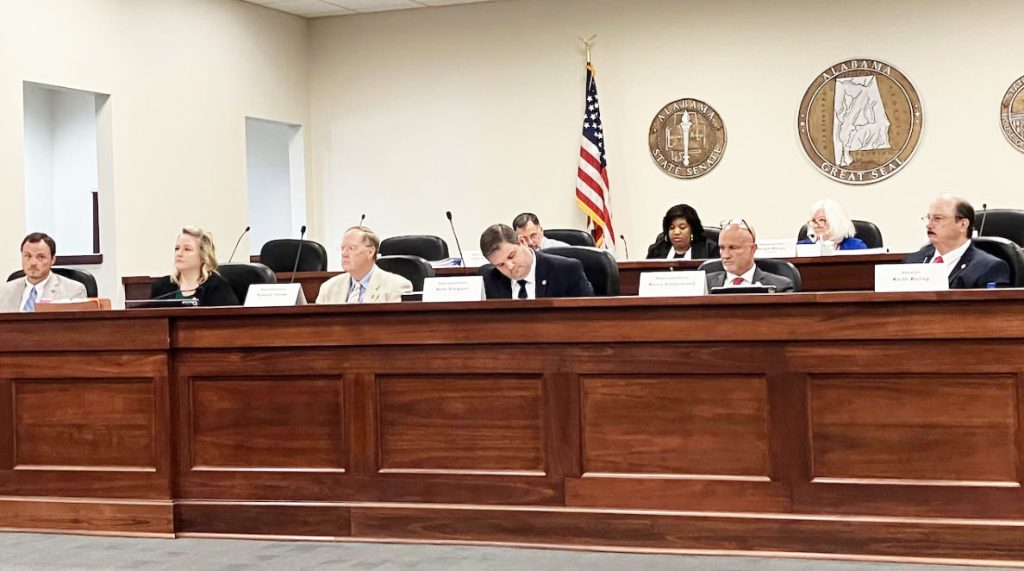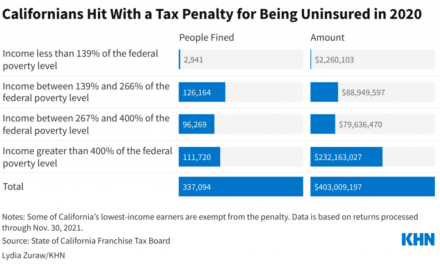By Mike Cason
Alabama lawmakers told the State Board of Pharmacy on Thursday to move quickly to fix problems cited in a report by the Examiners of Public Accounts.
The Legislature’s Sunset Committee, which reviews the finances and activities of public boards, held a public hearing on the report, which was released Wednesday and covered the Board of Pharmacy’s operations from October 2019 through September 2023.
Examiners listed 14 “significant issues” with the board, including the collection of fines and penalties in ways not allowed by the law, the inaccurate reporting of fines collected, and failure to follow the state’s open meetings law and document the disposition of cases when it approved fines and penalties.
“Honestly, with this report, we could be here all day,” said Sen. Keith Kelley, R-Anniston. “Extremely, extremely, extremely troubling.”
Sen. Sam Givhan, R-Huntsville, said, “I haven’t been on this committee very long, but this is one of the worst reports if not the worst I’ve seen. I would recommend that the board start working post-haste to remedy these issues.”
Donna Yeatman, a pharmacist who is executive secretary of the board, spoke on behalf of the board and said changes were already underway in response to the Public Examiners report.
Five people, including two attorneys who have represented pharmacists before the board and one pharmacist, spoke critically of the board during the hearing. Several people, including two pharmacists, spoke favorably about the board.
The State Board of Pharmacy has five members, all pharmacists. Three are appointed by the governor and two are elected by pharmacists.
The board and its staff, which has 24 employees, licenses and regulates pharmacists and the pharmacy industry. It issues permits to pharmacies, manufacturers, packagers, and wholesalers. It investigates complaints and violations.
The issues that raised the most alarm during Thursday’s hearing were the fines and penalties collected by the board – how it levies those fines and how it reports the revenue. That included the board’s practice of entering deferral agreements with licensees accused of violations.
Under those deferral agreements, the Board of Pharmacy collects administrative costs from the entities that are in some cases double the normal amount of fines, the Public Examiners report said. The violations are categorized as “pending” for a deferral period. If the agreed administrative costs and fines are paid without additional violations coming up, the charges are dismissed and are not reported on the licensee’s record.
Rep. Matt Simpson, R-Daphne, who is a prosecutor, said the deferral agreements give the impression that wrongdoing by licensees can be covered up.
“There is a lack of sunlight in your program, in your department, in your board,” Simpson said. “With the deferred prosecutions, I’m not saying you’re sweeping things under the rug. There is an appearance of, if you were sweeping things under the rug, there is nothing that we would be able to see these things.”
The Public Examiners report said its review of some of the deferral agreements appeared to show the board collecting fines and penalties in excess of what the law allows.
For example, one company that was late to report to the board a change of ownership for two permits was offered two options: Sign a consent agreement, which is a reportable offense, and pay a fine of $2,000 per permit, a total of $4,000. Or sign a deferral agreement, a non-reportable offense, and pay an administrative cost of $5,000 per permit for a total of $10,000.
The administrative cost of the deferral agreement appeared to exceed the allowable limits of fines and penalties allowed under the law, the Public Examiners report said.
The Public Examiners report said Board of Pharmacy did not accurately report the amount it collected in fines, penalties, and administrative costs.
During fiscal years 2020 through 2022, the board reported fine and penalty revenues of $575,000, $618,000, and $681,000.
That number dropped sharply in fiscal year 2023, to $195,000, a 71% decrease. There was a corresponding increase in “miscellaneous income” in 2023. It rose from $86,000 to $598,000, a 594% increase.
“This shift in the classification and recording of administrative costs/fines in the Board’s financial records creates an inaccurate depiction of how much the Board is collecting in administrative costs/fines from licensees and applicants of the Board,” the Public Examiners report says.
Joseph Kreps, a lawyer from Birmingham who has represented pharmacists before the board, said the board deliberately tried to hide how much it was collecting in fees.
“In 2023, they attempted to make it seem like the fines had dropped to $198,000 while nearly $600,000 mysteriously appears as miscellaneous income,” Kreps said.
Kreps said he had filed public records requests to see the deferral agreements but the board would not provide the information.
Yeatman said the change in how the revenue was reported happened because the board changed attorneys and the new attorney categorized the money as administrative costs, not fines and penalties.
“So when it was submitted to the accountant, the accountant didn’t put it in fines and fees because it was written as administrative costs,” Yeatman said. “So it was put into miscellaneous income.
“All that being said, I can now only tell you that, now knowing what we know, should have termed it differently, should have had an individual line item. There was no intention. I look at the bottom line, not necessarily every category. So to me, every dollar was accounted for. And what bucket it was put in, didn’t seem to be an issue, because all of the money was being reported on the financial statement.”
Another issue raised by the Public Examiners report involved financial penalties collected by the board by entities not yet licensed by the board. The report said the board issued statements of charges to entities disciplined for violations committed other states. Those entities paid the board administrative costs or fines in addition to the normal initial licensure fees. Those cases were handled without a consent order or deferral agreement spelling out those terms, the report said. The amount of those payments ranged from $50 to $18,000.
The report noted that the state law authorizes the Board of Pharmacy to issue charges only to active licensees.
Rep. Kerry Underwood, R-Tuscumbia, who is a CPA, questioned Yeatman about that practice of issuing charges to entities not yet licensed by the board.
“From my perspective, the optics are what’s bad,” Underwood said. “The optics are a pay-to-play kind of thing.”
Yeatman said the non-licensed entities were charged and fined in the interest of protecting the public.
“I know it’s just my words,” Yeatman said. “But I can assure you that every time we are looking at these it is absolutely from the standpoint of if it were my child or my grandmother that was going to receive this, are they acceptable to do that. Do they have the qualifications and the processes in place to take care of patients.”
The Public Examiners examined the minutes of 60 Board of Pharmacy meetings and said 53 did not reflect official actions of the board. There was no mention of the board’s decisions to dispose of cases through deferral agreements in 47 meetings, the report said. The board went into executive session, or closed meetings, 52 times, but did not record the purpose for the closed section, as required by the open meetings law, 43 times.
Several people told the Sunset Committee the Board of Pharmacy was performing its duties well. They praised the board for being proactive, including its work to make special accommodations to provide patient care during the COVID-19 pandemic.
“This board is very proactive in our profession,” said James Jones of Prattville, a pharmacist since 1985. “The staff, investigators, all the board members, they provide us with continuing education. They’re constantly involved in our professional daily lives. They keep us informed on the laws that change and even inform us when there’s been medical hearings and doctors have had discipline on their licenses and we don’t need to fill their prescriptions but have no other way to find this out.”
Jones said he had confidence in the integrity of the board and its staff.
“Our involvement with this board is they are driven by moral compass to always do what’s right,” Jones said.
“My experience with this board is the ultimate integrity,” he said. “Everyone involved, from Donna, to her staff, to investigators to all the board members. They have hard decisions to make. But I believe this board and their staff do everything they can, even when it’s not easy, to make sure the citizens of Alabama are protected.”
Simpson, the representative and prosecutor from Daphne, told Yeatman that the Board of Pharmacy needs to operate in a more transparent way because of its important role for the public, including in helping to confront major health care problems such as mental illness and the opioid epidemic.
“We need to see some changes and we need some changes significantly faster with your involvement with the Department of Public Examiners, with your involvement with this committee,” Simpson said. “I’d like to make sure the public has the protection to trust in your agency. Because if they can’t trust you, we’re in for a world of hurt.”
Yeatman said she agreed and said the board would make changes and follow up with the Public Examiners.










